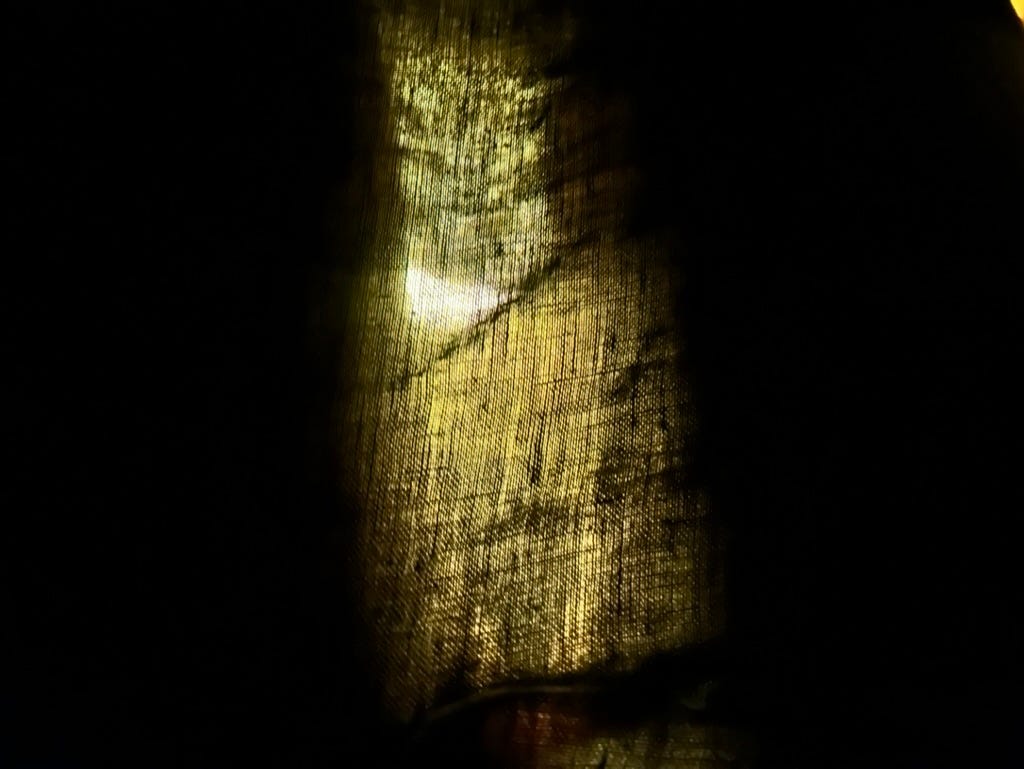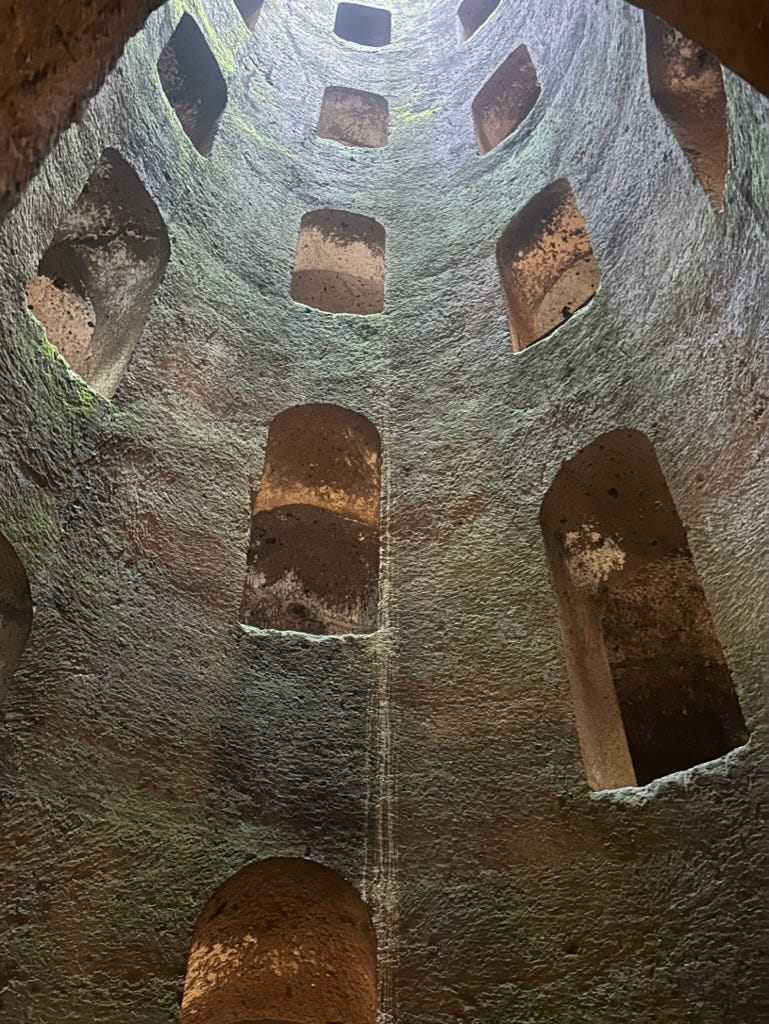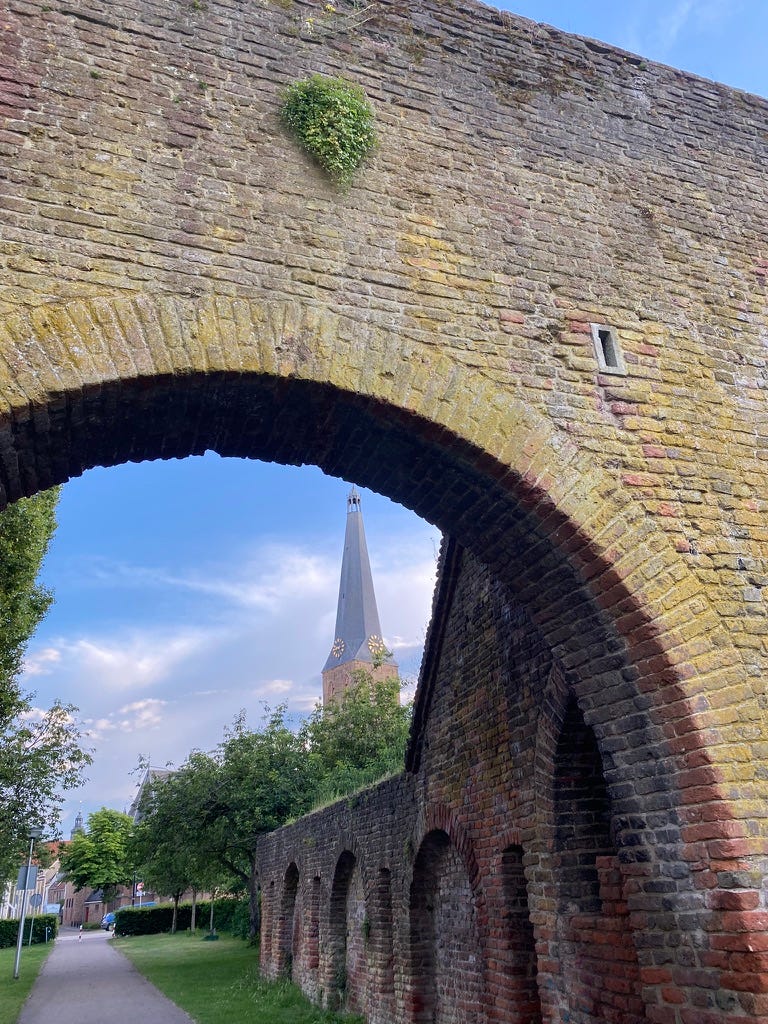When Yme and I decided to move in together, we thought it would be a good idea to see a couple's therapist as a kind of insurance policy against potential problems. Our therapist had a small statue of an ampersand on the table next to her chair. Anytime one of us said a sentence that might include the word but, she’d point to the statue, saying and and. It became a joke between us, the silly statue, the assumption that a but was about to fall from our mouths. And and. Pretty quickly, we started to feel united in our annoyance. That ampersand statue solidified our commitment to being a team more than anything we talked about during those therapy sessions.
While making dinner last night, I listened to an Ezra Klein interview with Katherine Shultz (Her memoir is called Lost & Found, and I'm excited to read it because she’s diving into the same joyful practice current that's caught hold of Jenn and me.) The interview is titled “Our Lives are an Endless Series of And” . Towards the end, Shultz talks about William James’ concept of stream of consciousness: thoughts are like birds flying around in our head, and the mind-bird’s tendency is to land on words that are graspable, like nouns and verbs.
But James wonders about the If. The Or. The And. They soar through our minds, much harder to grasp than nouns like cup and verbs like break. There’s a moment in the interview when Shultz asks, “What’s the feeling of And?” I ran to my phone, olive-oil-covered fingers sliding over the smooth glass face, and hit pause.
The feeling of And?
I closed my eyes, ignoring the olive oil dripping from my hands, and tried to figure out what And feels like.
And feels like what if. And feels like cross-pollinated poppies that might share colors or textures but bloom in crazy combinations. And feels like a Chimera with its goat body, snake tail, and its fire-breathing lion head. And feels like stumbling forward and catching my footing just before I dive into a cold lake. And feels like waking up from a nightmare and realizing I am here, in our bed, just as Yme reaches over and puts his hand on my belly, and my body returns to the dark safety net of our home.
And feels like negative capability, that is, holding the tension of opposites, sitting with uncertainty and doubt without seeking finite solutions or reverting to rigid ideologies. And feels curious and open like a palm. And lifts up the window to listen to the waking birds, laughs at the neighbor’s children yelping as they chase each other through the backyard, even if the noise interrupts the quiet stillness of the morning.
And feels like the pause of the threshold Jenn wrote about a few weeks ago, those in-between times of birth and death, where grief and joy hold hands. And picks up time and carries it backwards and forwards. It connects before with after and makes space for right now.
When our baby sis, Mari, was pregnant with her daughter, our mother was dying. Her father, too. My siblings and I were exhausted. Heart broken and straddling the And-ness of what our family was and what it might become once our parents were gone.
And and what joy when little Lucia was born. What joy to watch our baby sister become a mother.
And and still that sense of loss, that what if that hung over us all.
Lucia was born about five months after Mom died. When she was two weeks old, I spent a few weeks with Mari and her husband helping out with new baby stuff, but mostly Mari and I soaked in sister time, and I got to breathe in the newest member of our family. Talk about pausing on the threshold–everything gets slow and soft when you enter the sweet bubble that is those early weeks of a new human life.
One night, I danced with Lucia to the Beatles song “Hey Jude.” The song reminded me of Mom, and I cried as I sang to Lucia and patted her tiny diaper butt. I missed my mama so bad. What if Mom had lived, I wondered, and what if she could hold Lucia now?
And and I was relieved she had died. There reaches a certain point in dementia when everyone knows shit is just gonna get unbearably bad. Death comes as a liberation. For the demented and their family.
At the beginning of their interview, Schultz talks with Klein about her father’s illness, about her experience of grief during the time just before and just after his death. “Very often,” she says, “grief and the awareness of the inevitability of death truly do heighten our sense of attention and our capacity to look at the world with gratitude and admiration.” Nothing feels more like And than the way grief co-mingles with the fierce joy of knowing, despite the devastation of loss, you are alive, and at the same time recognizing that whoever it is you’ve lost will never again share in the experiences that make being alive exquisite.
In one week, Yme and I fly to the Netherlands to help settle his father into a memory care facility. We've been here before, Yme and me–witnessing and midwifing our mothers through the downward spiral of Alzheimer's and Lewy Body dementia. We know where this is going, but the details of how it will get there, the course it will take, will be new. I’m going to the Netherlands to support Yme, but I’m also going to offer companionship and comfort to his father. It's likely this trip will be a kind of goodbye to the sweet man I’ve grown to respect and feel deep affection towards, someone whose loss I will grieve.
Our time in the Netherlands will be one series of And after another. It will feel good to get away from the US for a little while, and it will feel awful to leave. It will feel good to help and awful, too, that our help is needed. We will feel frustration, and we will feel tenderness, sadness, and relief.
When I think back on that therapist’s finger pointing to the ceramic ampersand, it's still laughably annoying, but (not and!) when I let go of how obnoxious her and and felt, I can see that five years ago–before Mom got really sick, before she died, before I was diagnosed with Crohn’s–five years ago, I didn’t have the experience I needed to grasp the feeling of And. That bird was still soaring through my mind, looking for a place to land.
Shutz’s question–What is the feeling of And?--found me right when I needed it, when I was ready for it. It is a question for our times. It offers empathy and potential rather than cruelty and close mindedness. And feels like hope wrapped around devastation, joy interlaced with loss. I want to slip into its jet stream. Whatever And has to offer, I want to discover.
P.S. (aka And and) It took me until this very moment, when I’m ready to walk away from my computer, ready to finally hit publish, it took me two days of dipping in and out of writing, to figure out that Joyful Practice is the feeling of And.









Such a beautiful essay, Sarah...it's resonating with me today. "And" means some kind of fusion of two things -- they can be different, like contrasting elements, or they can be similar, like when we compare one thing to another to learn more about it, to see it more fully. It's that ability to entertain two opposing thoughts or ideas at once -- grief and joy exist simultaneously, life and death mirror one another, so now you've got me thinking about what the "and" really means..